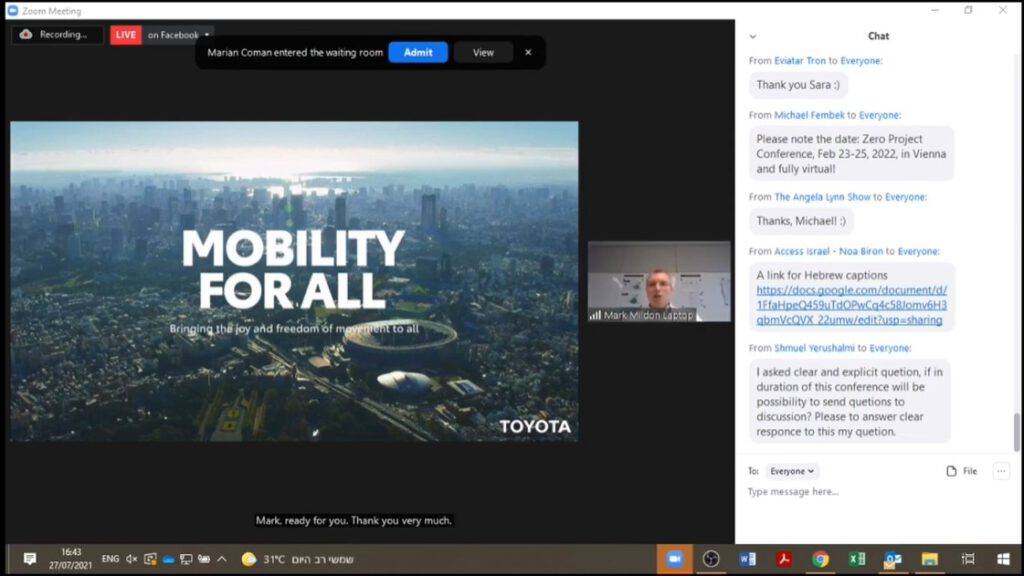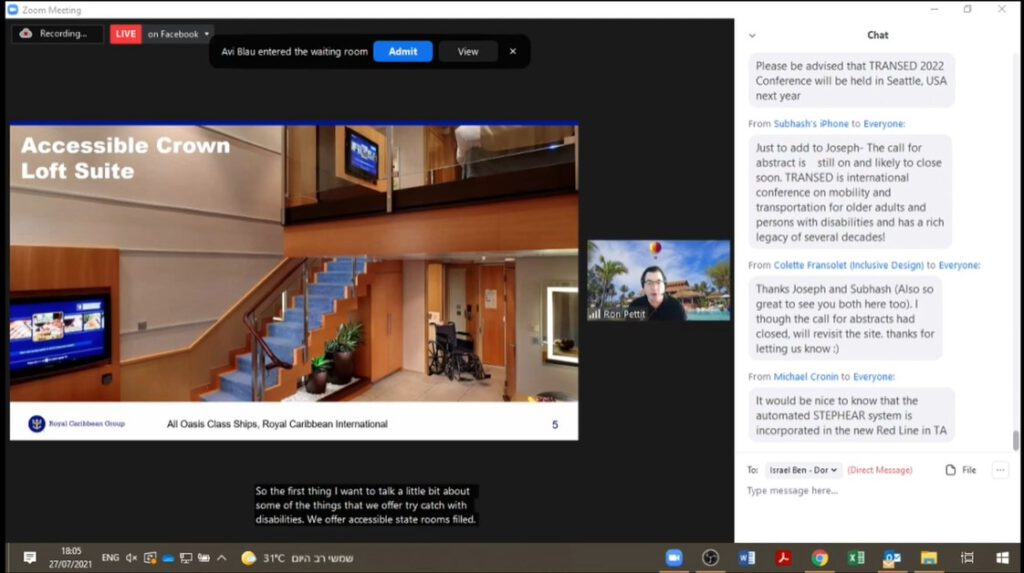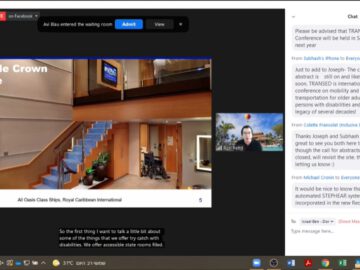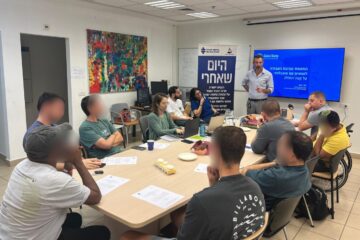The 9th International webinar which took place on the 27th of July and focused on “Accessible Future – Transportation for All, During and Post COVID-19” was a huge hit!
15 professionals from the US, Middle East, Europe, and Africa, brought their organizational perspective on transportation trends like COVID-19 restrictions, micro mobility, digitalization adoption, self-driving vehicles, regulation compliance and Mobility as a Service (MaaS), in relations to accessibility and disability.
Here are some great highlights if you missed us!
You can also watch the full webinar on our global site for accessibility sharing.
Mark Mildon, Head of Planning and Engagement Paris 2024 at Toyota Motor Europe had shared Toyota’s new design of a universal taxi – The model will be universal by design, and most adaptions that are made today as an after though, will exist in the original design for this taxi. Some of these built-in elements are a ramp, sliding doors with a wide opening, handrails and more.

Except for the amazing undisputable innovation Mobileye, an Intel Company, is bringing to the table, Johann Jungwirth (JJ), Vice President of Mobility-as-a-Service (MaaS) has demonstrated the company’s socially responsible outlook on mobility by presenting the relation between access to mobility and income. A social centered mindset which leads to incredible results!
Victor Calise, Commissioner for Rights of People with Disabilities, at the NYC Mayor’s office, explained the importance of the continuity in accessibility – The iconic NY yellow taxis have been through an accessibility revolution to provide accessible service to the 1 million new Yorkers with disabilities and 6 million tourists with disabilities which visit each year. NY mayor’s office realized that ride sharing apps are getting more and more popular and set the standard for accessible applications for ride sharing in NY, so the iconic yellow taxi experience will be available for all people.
Yael Shomron, Global Marketing Manager, at Step-Hear shared their latest developments for smart systems for public transportation. They offer a completely automated system which increase safety levels for users, with high levels of connectivity whether that be before boarding the vehicle, or during the ride itself. Their app is Free of charge (App Store, Google play), and they consider all people so they offer a wrist band option for those who do not use a smartphone.
Royal Caribbean Group offers great accessible affordable options for people with disability. A very important fact which Ron Pettit, Director, Disability Inclusion & ADA Compliance mentioned, is that the accessible luxury suite is occupied by people with disabilities 90% of the time, contradicting the misperception that people with disabilities cannot afford luxury goods and services. Like in other examples seen, it might be the other way around, not enough luxury goods and services are accessible, hence, the low usage rate by the population.

Many times, autonomous vehicles conversation in reference to people with disabilities revolve around vision impairment so it was really refreshing to hear from Dr. Shani Jayant, Principal UX Designer, at Volkswagen Group of America how they take into account diverse disabilities like hearing and cognitive impairments, or mobility disabilities while including individuals with sight impairments.
Fred J Maahs Jr., Founder and CEO,
Maahs Travels, reminded us to take into consideration the psychological influence of an accessible transportation and environment like promotion of the sense of independence, gaining the ability to travel, with friends, with family, or alone, and reinforcement of one’s self-esteem. All this benefits not only the individual but creates a ripple effect for society, something we sometimes overlook to an extent when we talk ‘business’ in accessibility.
I’d like to thank all professionals who donated their time and knowledge to the webinar, I couldn’t write about each one of the presentations today unfortunately, but the content were so impactful! I recommend you watch the full webinar on our
global site for accessibility sharing.
So, a great thank you to Michael Fembek, Director of
the Zero Project, Essl Foundation, and Eviatar Tron, CEO of EcoMotion, for giving us support and assistance throughout the whole process.
All amazing speakers:
Omer Zur, CEO and Founder,
Paratrek
Gabby McCaig, Global Head of Community Affairs, Via
Nirit Glazer, Co-founder and CEO, LookingBus
Colette Fransolet, Director, Inclusive Design
Sara Marchant, Service Manager – Passengers Requiring Support, Heathrow Airport
Deborah Mellen, Founder and CEO, Impossible Dream
Google and Step-hear our amazing sponsors!
And of course, Language People for providing the most professional sign language interpreters, a special thanks to Pam Soto for assisting in more than interpreting this time!
Write me at
noab@aisrael.org if you’d like to suggest topics for our next webinars. See you there!







